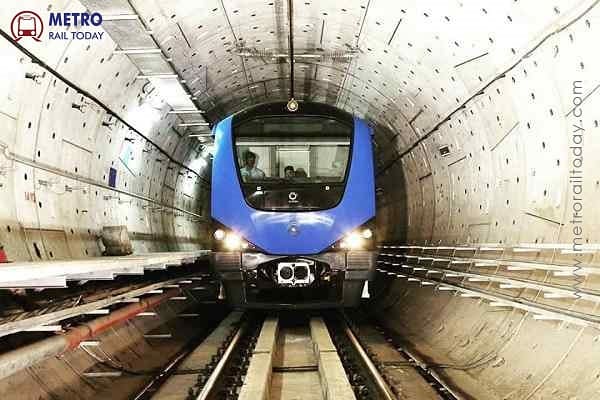 CMRL achieves second Tunnel Breakthrough at Thirumayilai for Chennai Metro Phase 2 Corridor 4
CMRL achieves second Tunnel Breakthrough at Thirumayilai for Chennai Metro Phase 2 Corridor 4 NHSRCL invites Single Tender from BEML for Bullet Train Rolling Stock Package
NHSRCL invites Single Tender from BEML for Bullet Train Rolling Stock Package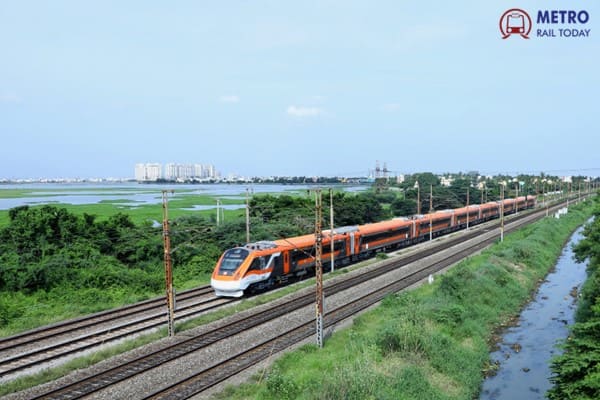 Railway Minister reviews progress of Ahmedabad–Dholera Semi High-Speed Rail Project
Railway Minister reviews progress of Ahmedabad–Dholera Semi High-Speed Rail Project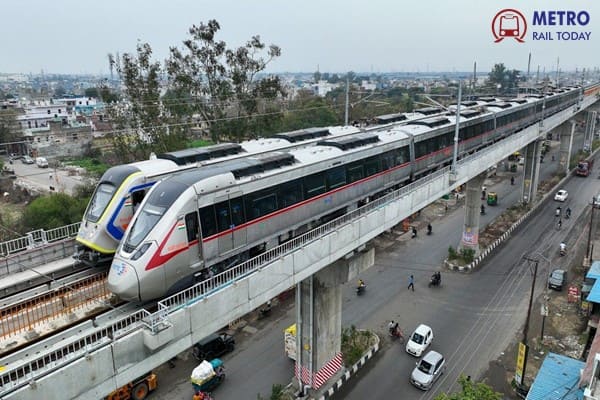 National Planning Group reviews key Rail & Metro projects under PM GatiShakti
National Planning Group reviews key Rail & Metro projects under PM GatiShakti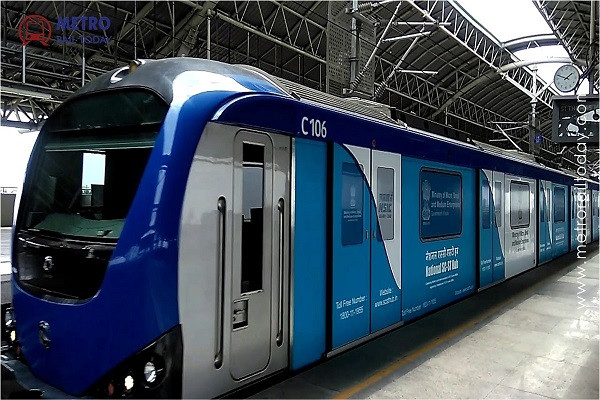 CMRS approves Driverless Metro Operations on first stretch of Chennai Metro Phase 2 Corridor 4
CMRS approves Driverless Metro Operations on first stretch of Chennai Metro Phase 2 Corridor 4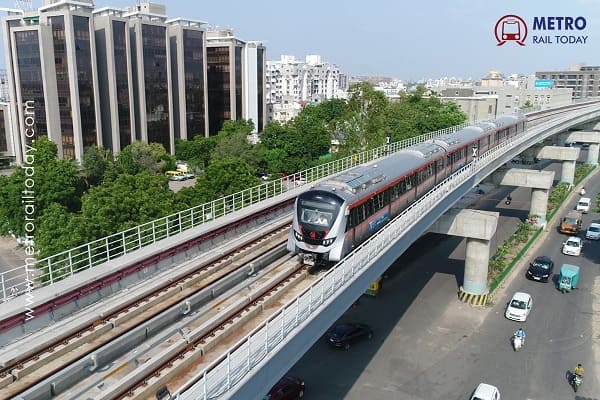 J Kumar Infraprojects completes Final Tunnel Breakthrough for Surat Metro Phase 1 Project
J Kumar Infraprojects completes Final Tunnel Breakthrough for Surat Metro Phase 1 Project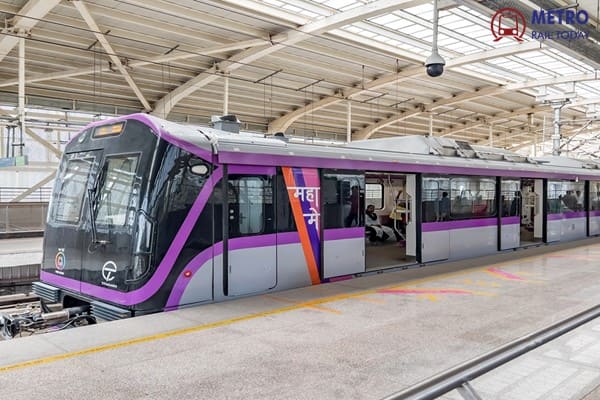 Apurvakriti Infrastructure awarded Ballastless Track Contract for Pune Metro Reach-1 Extension
Apurvakriti Infrastructure awarded Ballastless Track Contract for Pune Metro Reach-1 Extension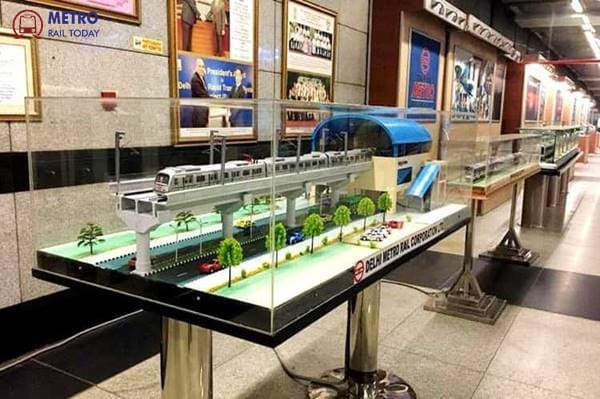 SAM India Builtwell bags first ₹222.76 Crore Civil Contract for Delhi Metro Phase V
SAM India Builtwell bags first ₹222.76 Crore Civil Contract for Delhi Metro Phase V HRIDC conducts Investors Pre-Bid Meeting for Haryana Orbital Rail Corridor
HRIDC conducts Investors Pre-Bid Meeting for Haryana Orbital Rail Corridor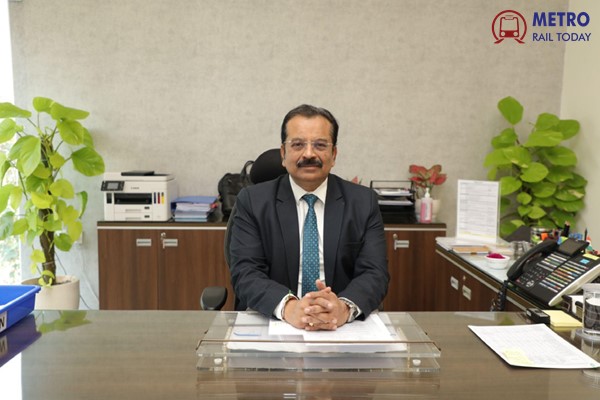 NCRTC Chief Shalabh Goel appointed as General Manager of Central Railway
NCRTC Chief Shalabh Goel appointed as General Manager of Central Railway
Kochi Metro Pink Line likely to begin Operations by June 2026
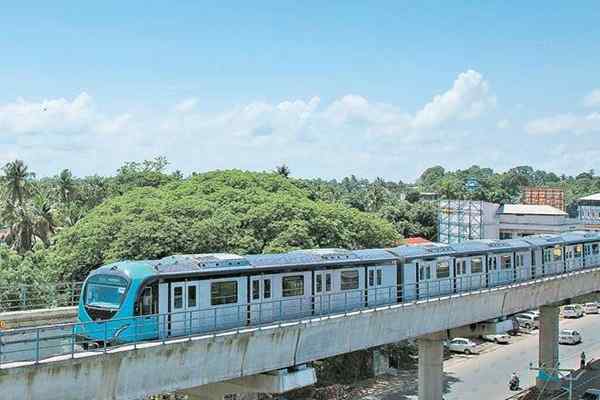
Kochi, India (Metro Rail Today): In a major update for commuters in Kerala’s financial capital, the Kochi Metro Rail Limited (KMRL) has announced that the much-anticipated Pink Line — connecting Jawaharlal Nehru (JLN) Stadium in Kaloor to Kakkanad — is likely to commence operations by June 2026.
The upcoming line, part of Kochi Metro Phase II, is expected to dramatically enhance urban mobility, reduce travel time, and ease traffic congestion along one of the city’s busiest corridors. The project, spanning 11.2 km with 11 stations, carries an estimated cost of ₹1,957 crore.
Over 50% Civil Works Completed
According to KMRL officials, a substantial portion of the civil work along the Pink Line corridor has already been completed. Out of 2,019 total piles, around 1,145 have been built, while 265 of 368 piers and 165 of 469 pile caps are now ready.
The first phase of operations will cover five key stations — Palarivattom Junction, Alinchuvadu, Chembumukku, Vazhakkala, and Padamugal. Services on the remaining stations, including Civil Station Junction, Cochin SEZ, Chittethukara, KINFRA, and Infopark, will begin by the end of 2026.
KMRL officials said this corridor is designed to serve Kochi’s fast-growing IT and business district of Kakkanad, which houses Infopark, Smart City, and SEZs, making it a critical link for thousands of daily commuters.
Ridership Set to Surge by Over 60%
Currently, Kochi Metro carries about 30 lakh passengers per month, and ridership is expected to soar beyond 50 lakh once the Pink Line becomes operational.
Officials said the new corridor would decongest major arterial routes like the Seaport-Airport Road and Kakkanad-Palarivattom stretch, while also offering seamless interchanges with Kochi Metro’s Blue Line at JLN Stadium.
“The Pink Line represents Kochi’s next leap in urban connectivity. It will link key residential, business, and IT zones while reducing travel time and emissions,” said a KMRL spokesperson.
Kerala’s Metro Network Expands
The Pink Line’s progress coincides with Kerala’s broader metro expansion strategy. Just last week, the Kerala government approved the first-phase alignment of the Thiruvananthapuram Metro Rail Project, which will connect Technopark, Thiruvananthapuram International Airport, Central Railway Station, Secretariat, and Medical College.
Together, the Kochi and Thiruvananthapuram Metro projects are poised to redefine Kerala’s urban mobility ecosystem — integrating sustainable transport, last-mile connectivity, and transit-oriented development.
“Kochi’s Pink Line is a vital link in Kerala’s metro growth story,” said Mrs. Mamta Shah, MD & CEO of Urban Infra Group. “It not only enhances urban mobility but also promotes economic activity in emerging corridors like Kakkanad. Once operational, the Pink Line will play a transformative role in shaping the region’s transit-driven growth and sustainable development.
The Pink Line — also known as the Kakkanad Corridor — is being developed using a third-rail traction system, ideal for narrow viaducts and dense urban areas. The project is being executed by Afcons Infrastructure Ltd, which is also constructing the viaduct and stations.
With the Kerala government and KMRL maintaining tight deadlines, Kochi is on track to join the ranks of India’s most efficiently expanding metro cities by mid-2026.




